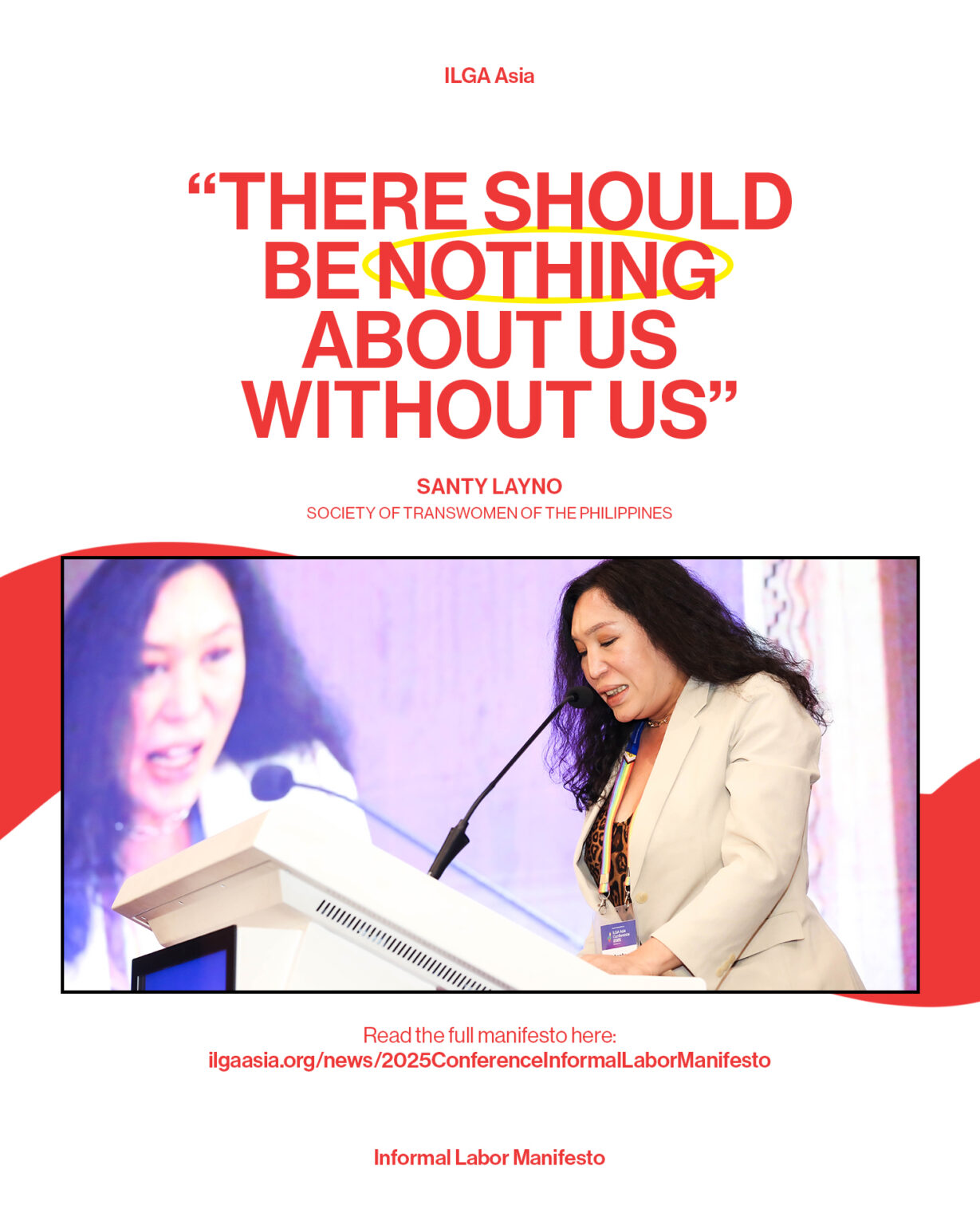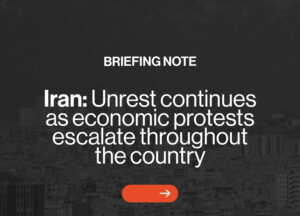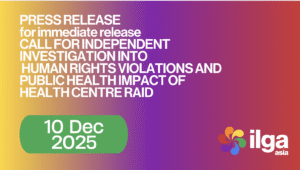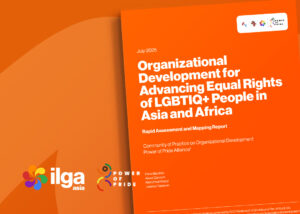The Informal Work Preconference Session focused on addressing the multifaceted challenges faced by sex workers in the region, highlighting the intersections of socio-economic hardship, cultural norms, and gender inequality. While recognizing the need for greater legal protection and dignity for sex workers, the conversation centered on the harsh realities of discrimination, violence, and exploitation that persist across many parts of Asia. Key issues discussed included the decriminalization of consensual adult sex work, as well as legal frameworks that ensure safety and protection for sex workers.
A comprehensive call to action emphasized the need for policies that prioritize the human rights of sex workers, focusing on economic empowerment through vocational training and social programs. Santy Layno, National Director and CEO of Miss Trans Global Philippines, reiterated the importance of inclusive health services and harm reduction programs designed to meet the specific needs of sex workers. There was also a strong push to foster solidarity, with calls for the formation of sex worker collectives and greater collaboration with broader human rights movements. Cultural stigma and misconceptions about sex work were identified as major barriers, with a collective commitment to challenging these views through education, dialogue, and media representation.
Manifesto on Asian Sex Work: Dignity, Rights, and Empowerment
1. Preamble
Sex work in Asia is a multi-faceted issue intertwined with socio-economic challenges, cultural norms, and gender dynamics. This manifesto seeks to empower sex workers, ensure their human rights, and advocate for policies that provide safety and dignity for all individuals involved.
2. Acknowledgment of Reality
Sex work exists in diverse forms across Asia, often as a consequence of economic necessity, lack of opportunities, and systemic inequalities. Recognizing this reality is the first step towards addressing the underlying issues and advocating for change.
3. Human Rights and Dignity
Sex workers are human beings deserving of respect, dignity, and the protection of their fundamental rights. Discrimination, violence, and exploitation against sex workers must be condemned and combated through comprehensive legal frameworks and social interventions.
4. Legal Protection and Decriminalization
– Advocate for the decriminalization of consensual adult sex work to reduce stigma and violence.
– Implement laws that protect sex workers from exploitation, trafficking, and abuse while ensuring their access to justice.
– Recognize sex work as legitimate labor, affording workers the same legal rights and protections as other professions.
5. Health and Safety
– Ensure access to comprehensive healthcare services, including sexual and reproductive health, mental health support, and harm reduction programs.
– Promote safe working conditions through regulatory frameworks that mandate health and safety standards.
6. Economic Empowerment
– Provide economic opportunities and vocational training for sex workers, enabling them to transition to alternative livelihoods if they choose.
– Support social programs that offer financial assistance, education, and skills development to reduce economic dependency on sex work.
7. Community and Solidarity
– Encourage the formation of sex worker collectives and advocacy groups that can amplify their voices and champion their rights.
– Foster solidarity with broader human rights and labormovements to ensure a unified approach to justice and equality.
8. Cultural Sensitivity and Inclusivity
– Address cultural stigmas and misconceptions about sex work through education, dialogue, and media representation.
– Promote inclusivity by recognizing the diverse experiences of sex workers across different regions, genders, and backgrounds.
9. Policy Recommendations
– Develop and implement policies in collaboration with sex workers and human rights organizations.
– Monitor and evaluate the impact of policies regularly, ensuring they meet the needs and rights of sex workers.
10. Conclusion
This manifesto calls for a collective effort to recognize and uphold the rights of sex workers in Asia. By ensuring dignity, legal protection, health, and economic empowerment, we can build a society that respects and values every individual’s choices and contributions.
“THERE SHOULD BE NOTHING ABOUT US WITHOUT US”




















